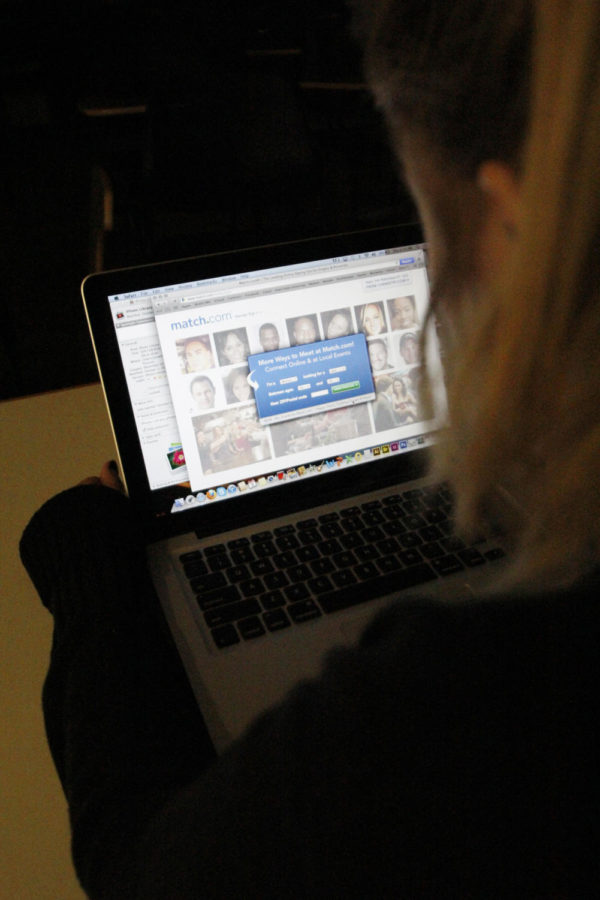‘Catfish’ show reveals online dating has risks, but is growing
Jonathan Krueger/Iowa State Daily
Some people use online websites to find potential websites.
October 4, 2013
Jennifer Hubbs does not describe herself as a closed person. She enjoys meeting new people and is willing to offer her trust freely, even when meeting people online.
“I think it is awesome to talk to people that you have met online. There’s so many people out there that you can meet,” Hubbs said. “My problem with trust is I always give people trust until I have to take it away.”
Hubbs, freshman in child, adult and human services, first began talking to a man named Skylar Hazen online in August 2012, and he became a person that she continued to enjoy having conversations with.
Only, his name wasn’t Skylar Hazen. It was Bryan.
“He was always nice to me, and it seemed like he liked me,” Hubbs said. “I don’t feel like I was gullible in the slightest. I felt that was real for me. I don’t know how he could have put on the front that he put on.”
On July 30, Hubbs appeared on the MTV show “Catfish,” a show that works to help people discover if the person they are talking to online is who they really say they are.
Hubbs and Bryan were never dating, only talking online.
The show is based off the documentary “Catfish” that surrounds Nev Schulman.
Schulman explained they chose the term catfish to describe people who portray themselves in a false light on social media from a story they heard while film the original documentary.
“It referred to a story that was told to us about how fisherman used to transport cod in giant ships and in the course of the journey the fish would become kind of lazy and their muscle would turn to fat,” Schulman said.
At some point a fisherman had the idea to put catfish in with the cod to keep them moving, thus resulting in better tasting fish.
“In life there are people who are catfish that keep everyone moving, guessing, they keep us on our toes,” Schulman said.
Schulman himself dealt with an online relationship where the woman on the other end was not who she said she was.
However, both Schulman and Hubbs still see the Internet as a great way to meet people, as long as you stick to Schulman’s advice to “trust, but verify.”
“If you have any doubts at all, it’s not wrong to ask,” Hubbs said about requesting to video chat with an individual to verify if they are who they say they are. “Don’t let yourself get in too far before you are sure.”
Schulman and Hubbs also agreed they do not feel many people online create fake accounts on purpose to start relationships. Instead, Schulman suggests many seem to start a fake profile out of insecurity or issues within their lives.
“They find some version of escape or happiness in the version of themselves they create online and what often starts out as a simple friendship or shared interest with someone that … escalates into a romantic relationship and much like quicksand the more involved you get, the deeper you sink into,” Schulman said.
Some warning signs people can look for to identify possible fake social media accounts, he said, are if the person has very few friends or photos and their photos are not tagged.
Hubbs continues to meet and talk to people online, and Schulman said that online dating only will continue to grow, but he still said in-person meeting in a relationship always will remain.
“Nothing will never account for or replace the chemistry that is or isn’t felt when you are sitting face to face with someone.”

















